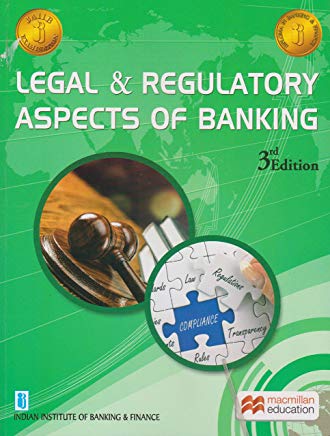JAIIB LRAB Unit 16 - Law Relating to Securities and Modes of Charge-I (Year: 2019)
Mortgage
Section 58 of the Transfer of Property Act, 1882 defines “ A mortgage is the transfer of interest in specific immoveable property, for the purpose of securing the payment of money advanced or to be advanced by way of loan, on existing of future debt or the performance of an engagement which may give rise to a pecuniary liability”
1. Simple Mortgage: Section 58(B)
The mortgagee has no power to sale without Court Intervention
No right to get any payments out of the rents
Not in possession of the property
Registration is mandatory.
2. Mortgage by conditional sale : 58 (c)
The sale is ostensible and not real
If the money is not paid on the agreed date, the ostensible sale will become absolute upon the mortgagor applying to the court and getting a decree in his favour.
The mortgagee can sue for foreclosure, but not for sale of the property.
There is no personal covenant for repayment of the debt and therefore bankers do not prefer this type of the mortgage.
3. Usufructuary Mortgage: 58(d)
The mortgagee is put in possession of the mortgaged property. Here by possession means legal possession not a physical possession.
The mortgagee has the right to received rents and profits accruing from the property.
He mortgagee cannot sue the mortgagor for repayment of the debt., sale or foreclosure of the mortgaged property.
If the mortgagor fails to bring a suit for redemption within 30 years, the mortgagee becomes absolute owner of the property.
Banker do not prefer this form of mortgage for the following reasons
There is no personal covenant to repay the debt.
It will take very long time to recovery money through this process
4. English Mortgage : 58(e)
It provides personal covenant
There is an absolute transfer of the property in favour of the mortgagee. Property shall be reconveyed to the mortgagor in the event of repayment of mortgage money.
The mortgagee can sue the mortgagor for the recovery of the money.
5. Mortgage by deposit of title deeds / Equitable Mortgage 58(f)
Where a person in any of the towns notified by the govt. concerned may, delivers to a creditor or his agent documents of title to immoveable property, with intent to create a security thereon, the transaction is called a mortgage by deposit of title deeds.
6. Anomalous Mortgage – 58(g)
It is combination of two mortgages:
Simple and usufructuary mortgage
usufructuary mortgage accompanied by conditional sale
JAIIB Study Material
| JAIIB Paper 1 Study Material |
| JAIIB Paper 2 Study Material |
| JAIIB Paper 3 Study Material |


